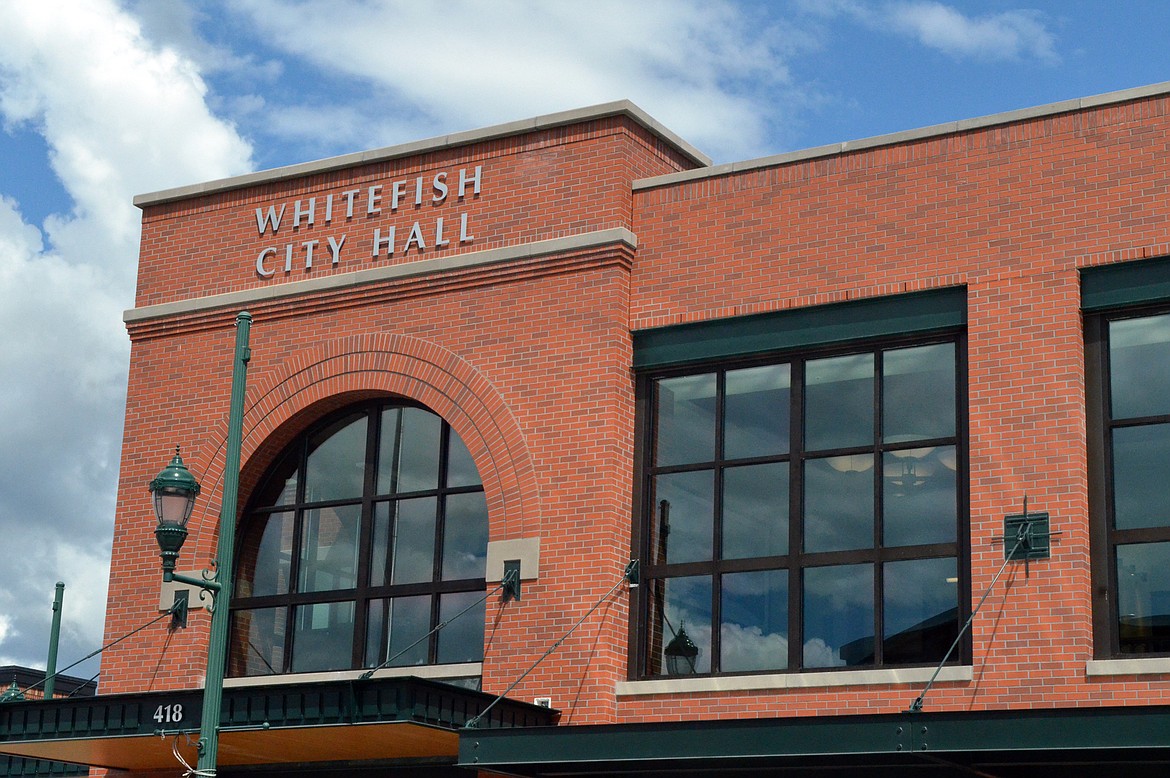Whitefish moves toward curbside recycling program
The Whitefish City Council is moving forward with a plan to collect recyclables directly from homes.
The council last week endorsed a curbside recycling program, but still has to approve an ordinance implementing it and a contract with the hauler to collect recyclables.
That would be a move away from the use of the city's central collection site at the corner of Columbia Avenue and Railway Street, which has been designated for an affordable housing project. City officials have been exploring whether to relocate the recycling center or transition to a curbside pickup program.
"I'm pretty … excited to have a curbside recycling program in town," council member Steve Qunell said. "If we're going to spend money on this, we should be doing it the right way. We know the issues at the central site we have now [with garbage left at the site], and the curbside program is the best way to capture more recycling anyway."
The council examined options during several meetings and held a public hearing last week on the proposed recycling program. Public Works Director Craig Workman noted a single-stream residential curbside recycling program is one of the strategies outlined in the city's Climate Action Plan.
"Diverting more waste from the landfill is one of the most direct strategies Whitefish can pursue to reduce the environmental impacts of the city's consumption," Workman said. "Implementing a committed and thoughtful single-stream curbside recycling program can have a substantial positive impact on community waste diversion, reduce contamination issues associated with multistream recycling, and support community participation."
Developing a new recycling site was estimated to cost about $183,000, and management of the site through a contractor was expected to cost about $100,000 annually. The cost of the site would have been passed onto all taxpayers in the city; a home valued at $400,000 would have paid $37 for the first year of the central site, and then about $15 per year afterward.
Asking about $262,500 per year, Republic Services was the lowest bidder for the proposed curbside recycling program with about 3,500 residential customers. For each pickup stop the yearly cost is estimated to be about $75 and the charge for service will be mandatory for residences in the city regardless of use, which is similar to the city's current garbage service.
Workman said the proposed program is structured with a user fee because individual service is provided to each residence.
DURING THE public hearing, Kate McMahon, who serves on the city's Climate Action Plan Standing Committee, said recycling is the biggest issue the group has discussed.
"I want to commend the city for taking on the recycling issue," she said. "This is a big issue in the community."
The program is set to accept flattened cardboard and paperboard; aluminum, tin and steel cans; and newspaper, magazines, office paper, catalogs and junk mail.
Mayre Flowers, with Citizens for a Better Flathead, asked that plastic be removed from the list of recyclable materials due to concerns that plastic collected around the world isn't actually recycled.
"We have tried to do some exhaustive research and can't find any firm that can commit that plastic gets recycled in the U.S.," Flowers told the council. "Most of the plastic gets shipped overseas, and most of that plastic ends up in oceans or villages and adds to pollution."
Chuck Stearns said many people might throw plastic in their recycling bins anyway.
"I support the curbside program, but if you go with single-stream but don't include plastic, then you'll have a lot of contamination because people will put plastic in there," he said.
Republic Services' Chad Bauer said only No. 1 and No. 2 plastics are accepted because that's what can be recycled.
"Everything we're looking at in this program is a commodity that has value somewhere in the U.S.," Bauer said. "None of the materials are recycled in Montana; they all get shipped elsewhere. But everything we take gets recycled predominantly in the U.S., but some of the materials may be going elsewhere because it's about supply and demand, and if the mills are full in the U.S. it gets shipped elsewhere. We will guarantee everything that we take gets taken to a recyclable facility."
As part of getting the program up and running, Bauer said the company plans an education campaign that would explain how to properly recycle and what should be placed in the bins. A bin found to be contaminated with the wrong materials would also be kept separate from the rest of the recyclable materials when pickup occurs so as not to contaminate an entire truckload.
"Our drivers look for contamination and then tag those bins showing why it couldn't be recycled and educating the customer," he said. "At that point in time the city will be notified, and for the first one to two times this is free of charge. And then, at some point, there will be a charge because there needs to be a penalty for not recycling properly."
FOR NOW, at least, the city's recycling program would only provide pickup at homes. Businesses have to contract directly with Republic Services or another contractor for recycling services.
Workman said the city and its contractor need to determine how collection will operate for multifamily residential buildings such as townhomes and apartments, including determining where containers will be placed for those properties.
Single-family homes with alley collection likely will get new 96-gallon rollout carts for recyclables.
While some have raised concerns about recyclable containers becoming a bear attractant, Republic Services said that properly disposed recycling should be free of food residue and thus not pose an issue.
Council member Rebecca Norton asked city staff to look into adding glass recycling and food composting to the program in the future.
Whitefish Pilot editor Heidi Desch may be reached at 406-862-3505 or editor@whitefishpilot.com.


